“I never discuss anything else except politics and religion. There is nothing else to discuss.”
―G.K. Chesterton
The 2024 election is imminent! Thus, Manjul and I thought we’d provide some light coverage of American civics, focusing on the electoral college, and then dip our toes into some of the presidential race dynamics. We were aiming to debate electoral college’s contemporary validity, but we didn’t quite get around to that. For those interested, we will link to some content that addresses that question more directly.
It is likely that many listeners will have already voted, and we weren’t looking to trigger heated political debates. Instead, we sought to focus on how our system of government is organized and the nature of our democratic input on it. The American system is unique, notable for its continuity, robustness, and deliberative nature. Hopefully, the discussion isn’t too anodyne for Substack.
Additional Notes on the Episode:
There was a moment in the show where we discussed the rules of eligibility to run for the office of president, which notably includes being a natural-born-citizen. Our discussion raised the question of whether the Founding Fathers who were not born in America were eligible for the office. In our discussion, we somewhat assumed that one or two of our early Presidents were born abroad. However, we checked into this and all our Presidents were born on the North American continent in colonies that became U.S. states. Stetson did argue that any originator of a country, i.e. a citizen at the birth of the country itself, would be considered natural-born and thus eligible. This does appear to be how the Framers understood things. So a Founding Father like Alexander Hamilton, who was born in the West Indies, would have been eligible to run for President. The first U.S. President to have actually been born in America as an American was Martin Van Buren.
We stumbled into a discussion about the voting status of the people who live in U.S. territories. We got the information correct. People living in U.S. territories are indeed American citizens with voting rights but the extent of their representation in our federal government is different than citizens living in the 50 states.
Stetson tried to borrow a metaphor from the political writer Jonah Goldberg about the hollowness of U.S. political parties today. In the context of presidential nominees, Goldberg has analogized political parties to fueled-up 747s ready for takeoff for whoever the primary electorates choose as the candidate. This was brought up in a discussion of how Donald Trump maneuvered to obtain the Republican nomination in 2016. He didn’t have a long history in Republican politics and was not committed to the same platform as many of the other candidates at the time yet won the nomination decisively and thus the party supported the hijacking in this case rather than asserting an institutional prerogative. This is an example of a party deferring to democratic mechanisms that didn’t exist at the time of their making. It is often brought up in discussion about how we now have weak political parties but strong partisanship.
We had a brief discussion on gender politics near the end of the podcast. Hopefully, we can return to the subject as there is a lot of complexity and controversy there. I have been especially interested in the writing and work of people like Richard Reeves, who have called attention to the lagging social indicators for men and boys. Stetson offered a thought experiment about which sex one would choose to be if we were behind John Rawls’ Veil of Ignorance.
Related to the discussion of gender politics, Stetson mentioned trends in the increase of female representation in Congress and other offices. Here’s a link out to some of visualizations out there on this trend.
Recommendations
This is Nate Silver’s outfit where he has constructed a model to predict election outcomes. The election for U.S. President is incredibly close.
Real Clear Polling - Poll Aggregator Site
Cook Political Report - Another election modeling group
Disclaimer
This podcast is for informational and entertainment purposes. The opinions expressed are solely our own. We are not providing professional advice (financial, medical, etc) of any kind.





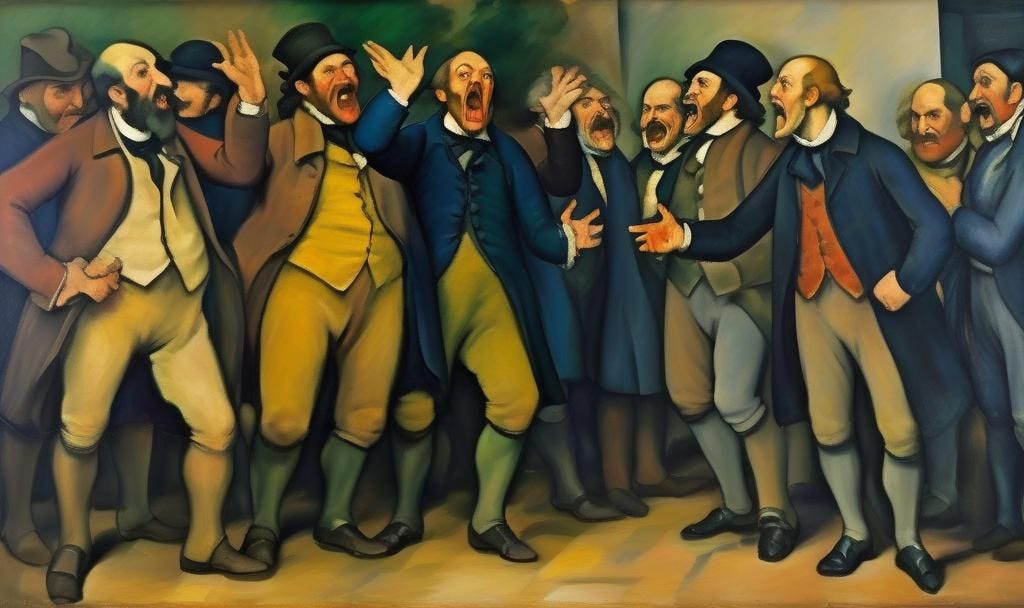



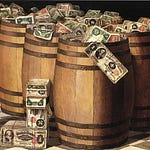

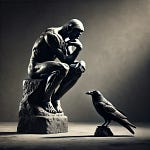
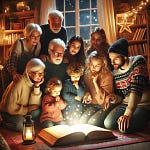

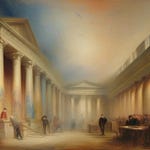
Share this post